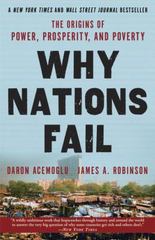Question
Using the module materials and the extract below, discuss the proposition that different types of household debt will make the cost of living crisis worse
Using the module materials and the extract below, discuss the proposition that different types of household debt will make the cost of living crisis worse for different households in different ways.
Extract: UWill household debt make the cost of living crisis worse?
New data reveals it is becoming increasingly difficult for people in the UK to pay off their debt - especially more affluent households. By the end of this year, the richest 20% of the population will see their ability to meet debt repayments fall by more than twice as much as the poorest 20%, according to information from Oxford Economics and Harvgreaves Lansdown.
Becky Portsmouth, a council worker, and her partner have a combined income of 54,000 a year. This is above the UK average, but they are still struggling with rising prices and mortgage payments. They are not alone. On average, people with Becky's household income will see a 5.8 percentage point fall in their ability to pay off debt.
'We have always wanted to work to live, not live to work,' she says. 'But at the moment, we just have to work and pay bills and that's going to be it. It's going to be a stretch, all the luxuries are going to have to go,' says Becky. 'I work for local government, so pay never goes up with inflation.'
Increasing food and energy prices have meant a rapid rise in interest rates, which influence the cost of things like credit cards and mortgages. Sarah Coles, a senior personal finance analyst at Hargreaves Lansdown, says that richer households are more affected by the squeeze on budgets because they tend to take on more debt. Ms Coles says that the rising cost of debt is going to require a 'culture shift' as people have become used to low and unchanging interest rates, 'but it's easy to forget that interest rates go up as well as down,' she says.
Low-income households also face a growing debt problem because despite having less debt on average, low-income households are more likely to struggle to keep up with repayments and to use debt to fund everyday spending.
Ms Coles also notes, the richest 20% are almost three-times more likely than the poorest 20% to take out 'good' debt - for example, to buy assets like a home and build financial resilience, rather than for everyday spending. This is because poorer households use a larger proportion of their income to cover essentials like food and energy bills, which are getting increasingly expensive. As they have a "lot less wiggle room" to cut costs they are at greater risk of entering into a negative debt spiral. It doesn't take an enormous amount for people who are just about making ends meet to turn into somebody who's not making enough at all.
Jane Holter works full time looking after her mum and is on carer's allowance of 67.60 a week. After her partner lost his second part-time job last year, they've struggled to cover the cost of rent, council tax and other bills. They have been trying to renegotiate their council tax since August last year and in the meantime have got into rent arrears with the housing association.
'I'm putting 25 to 30 on electric and whatever on gas and then I've still got to try and feed the house,' she says. 'At the moment, my partner's going to the food bank each week and just before Christmas, we got two fuel vouchers from Citizen's Advice because we couldn't afford to put gas or electric on. I've got other debts, which I pay 2 a month towards. My mum gave me 300 pounds to pay some of it off. But we have to pay her back so much every month because she's only on attendance allowance. This is the worst it's ever been with money - it's really hard, but I wouldn't take out any more loans because it's going to propel us into more debt and then we'll be in an even worse mess."'
Step by Step Solution
There are 3 Steps involved in it
Step: 1

Get Instant Access to Expert-Tailored Solutions
See step-by-step solutions with expert insights and AI powered tools for academic success
Step: 2

Step: 3

Ace Your Homework with AI
Get the answers you need in no time with our AI-driven, step-by-step assistance
Get Started


